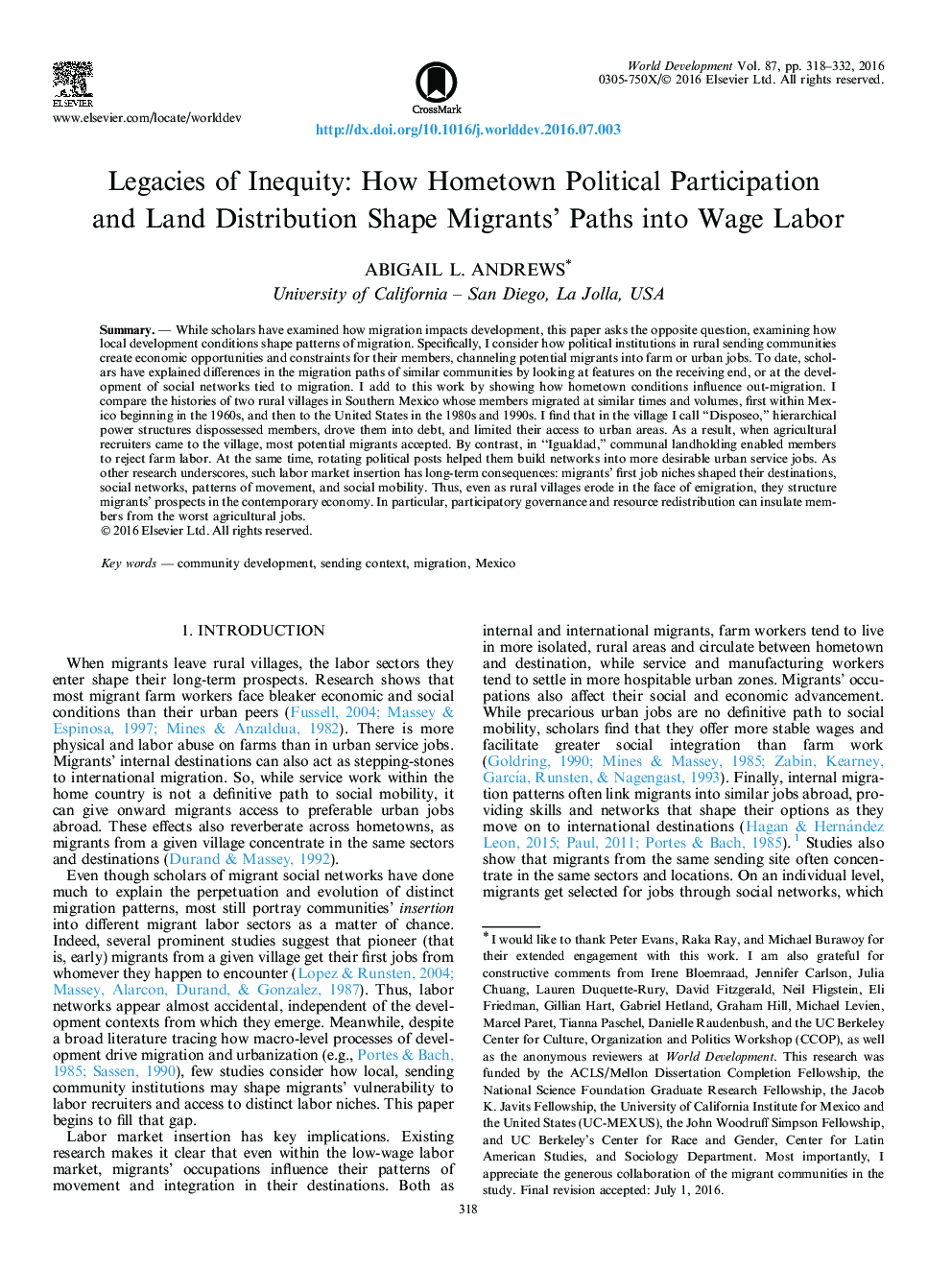| کد مقاله | کد نشریه | سال انتشار | مقاله انگلیسی | نسخه تمام متن |
|---|---|---|---|---|
| 7392503 | 1481131 | 2016 | 15 صفحه PDF | دانلود رایگان |
عنوان انگلیسی مقاله ISI
Legacies of Inequity: How Hometown Political Participation and Land Distribution Shape Migrants' Paths into Wage Labor
ترجمه فارسی عنوان
مزایای بی عدالتی: چگونگی مشارکت سیاسی شهر و توزیع زمین، مسیر اشتغال مهاجران را به کار دستمزد
دانلود مقاله + سفارش ترجمه
دانلود مقاله ISI انگلیسی
رایگان برای ایرانیان
کلمات کلیدی
توسعه جامعه، ارسال متن، مهاجرت، مکزیک،
موضوعات مرتبط
علوم انسانی و اجتماعی
اقتصاد، اقتصادسنجی و امور مالی
اقتصاد و اقتصادسنجی
چکیده انگلیسی
While scholars have examined how migration impacts development, this paper asks the opposite question, examining how local development conditions shape patterns of migration. Specifically, I consider how political institutions in rural sending communities create economic opportunities and constraints for their members, channeling potential migrants into farm or urban jobs. To date, scholars have explained differences in the migration paths of similar communities by looking at features on the receiving end, or at the development of social networks tied to migration. I add to this work by showing how hometown conditions influence out-migration. I compare the histories of two rural villages in Southern Mexico whose members migrated at similar times and volumes, first within Mexico beginning in the 1960s, and then to the United States in the 1980s and 1990s. I find that in the village I call “Disposeo,” hierarchical power structures dispossessed members, drove them into debt, and limited their access to urban areas. As a result, when agricultural recruiters came to the village, most potential migrants accepted. By contrast, in “Igualdad,” communal landholding enabled members to reject farm labor. At the same time, rotating political posts helped them build networks into more desirable urban service jobs. As other research underscores, such labor market insertion has long-term consequences: migrants' first job niches shaped their destinations, social networks, patterns of movement, and social mobility. Thus, even as rural villages erode in the face of emigration, they structure migrants' prospects in the contemporary economy. In particular, participatory governance and resource redistribution can insulate members from the worst agricultural jobs.
ناشر
Database: Elsevier - ScienceDirect (ساینس دایرکت)
Journal: World Development - Volume 87, November 2016, Pages 318-332
Journal: World Development - Volume 87, November 2016, Pages 318-332
نویسندگان
Abigail L. Andrews,
